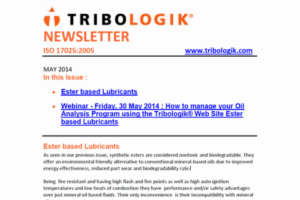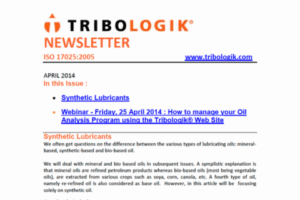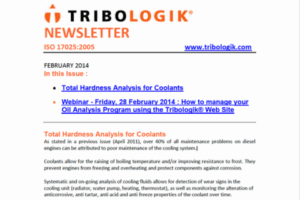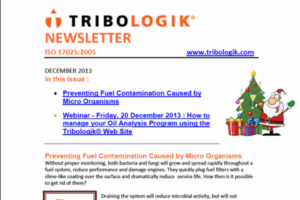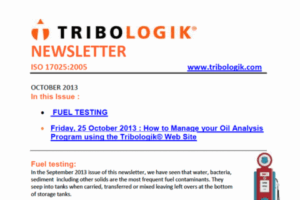The particle quantifier index test measures the mass of ferrous wear debris in a sample and displays this as PQ index by Hall Effect regardless the particle size.
The Hall Effect is a measurable induced voltage across a sample. The higher the observed Hall voltage, the higher the concentration of ferromagnetic wear debris present.
As seen in our previous issue, synthetic esters are considered nontoxic and biodegradable. They offer an environmental friendly alternative to conventional mineral-based oils due to improved energy effectiveness, reduced part wear and biodegradability rate.
We often get questions on the difference between the various types of lubricating oils: mineral based, synthetic-based and bio-based oil. We will deal with mineral and bio based oils in subsequent issues. A symplistic explanation is that mineral oils are refined petroleum products whereas bio-based oils (most being vegetable oils), are extracted from various crops such as soya, corn, canola, etc. A fourth type of oil,
namely re-refined oil is also considered as base oil. However, in this article will be focusing solely on synthetic oil.
In the previous issue of this Newsletter we have seen how total water hardness in coolants may lead to corrosivity due to to high calcium and magnesium content. Total hardness however, is just one test among many others for coolants.
Following our investment in a brand new oil analysis laboratory in the City of Hammond IN (Greater Chicago area), Tribologik Corporation has been awarded a “Star
of the Lakeshore” investment certificate at the February 15 Lakeshore Chamber of Commerce’s (NorthWest Indiana) awards dinner.
As stated in a previous issue, over 40% of all maintenance problems on diesel engines can be attributed to poor maintenance of the cooling system.
Coolants allow for the raising of boiling temperature and/or improving resistance to frost. They prevent engines from freezing and overheating and protect components against corrosion.
Downtime reduction, time and money savings on spare parts and maintenance costs, keeping equipment in optimal operating condition are the most commonly quoted benefits of oil analysis, and for good reason.
Without proper monitoring, both bacteria and fungi will grow and spread rapidly throughout a fuel system, reduce performance and damage engines. They quickly plug fuel filters with a slime-like coating over the surface and dramatically reduce service life. How then is it possible
to get rid of them?
Contaminated or poor quality fuel causes numerous adverse effects on engine performance, parts, components and supporting systems such as pumps and injection systems. The first and most obvious adverse effect of water on metal is corrosion, water being the ideal growth
environment for bacteria, a prominent cause of filter plugging and poor engine performance.
In the September 2013 issue of this newsletter, we have seen that water, bacteria, sediment including other solids are the most frequent fuel contaminants. They seep into tanks when carried, transferred or mixed leaving left overs at the bottom of storage tanks.


